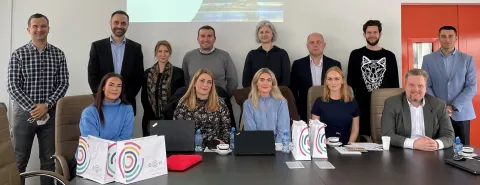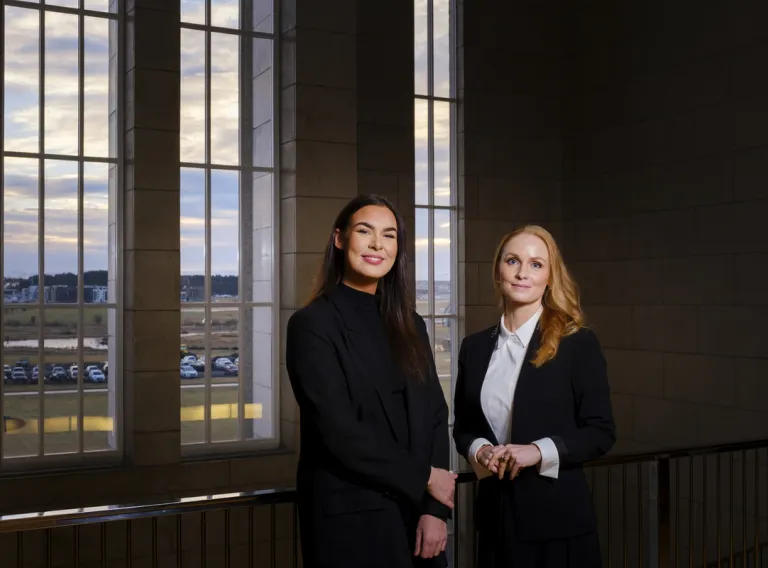
We all manage projects in daily life. Making a grocery list and checking off each item put in the shopping cart at the store is an example of a simple one. The projects in business are usually a lot more complex. Project management is rapidly becoming a more significant part in the operations of companies and institutes; not surprisingly since research shows that around one third of the gross domestic produce in economies all over the world stems from projects. Research scientists in the field of project management say they there are indications that this percentage will increase in the near future. But why? Because project management increases efficiency, capacity, productivity, it improves utilisation of resources, as well as ensuring delivery times and quality.
The University strategy, UI26, encourages the increase of joint study programmes with international universities. An indication of this can certainly be seen in a new collaborative project in three European universities on the development of a comprehensive course on sustainable project management and projectisation on graduate level. The University of Iceland, and the universities in Belgrad and Vilnius are involved in the project and are currently running a trial course accessible to master students in project management at the University of Iceland. The project received a substantial grant from the European Union.
"The main objective in the course is to implement sustainable mentality into projects," says Inga Minelgaite, professor of project management at the University of Iceland, but she leads the project for the University. Project management is vital in all operations, she says, and a sustainable mentality when processing projects leads to societal and economic improvements; vital in our time as we face miscellaneous global challenges.
"We are, with this, counting on sustainability becoming an integral part of master studies in project management at the University of Iceland.”
Inga says that the project is extremely useful to university students as it provides the opportunity to be a part of teams in international projects with various levels of complexity. "They experience the mechanisms of sustainable development in projects and in other cultures, whilst getting ideas for reformation of sustainability policies in both domestic and international companies."
Developing a course accessible to all
The doctoral student Ingibjörg Karlsdóttir was part of the group preparing the project funded by Erasmus+. She got the opportunity to join the planning group little over a year ago.
"It is a great honour to be part of the project's planning group and amazing to see it become a reality after taking part in the preparations. I am incredibly proud of the students in this project," says Ingibjörg.
She adds that the idea behind the current course development is to give other universities the chance to implement the course by following the handbook that will be drawn up during the project.
"Once the project is completed the handbook will become accessible to all," says Ingibjörg.
A strong focus on sustainability in course development at the University of Iceland is in line with the goals of the new University strategy to share knowledge to contribute towards a sustainable society. The University will lead the way in sustainability through teaching, research, and the creation of knowledge according to the new University strategy. Ingibjörg says that universities have an important role when it comes to creating the future of sustainable management leading to a more sustainable society, and Inga concurs.
